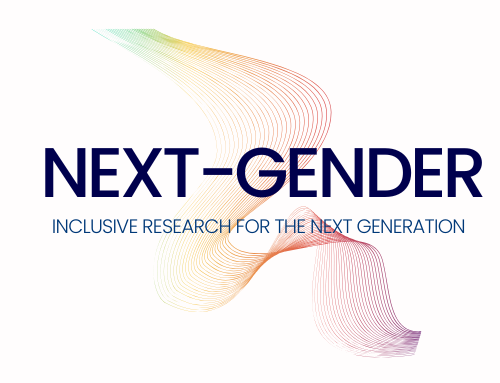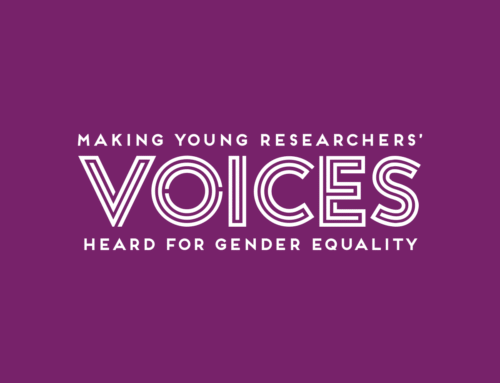We are pleased to introduce the trainers for the Summer Training “Unlocking Knowledge, Experience, and Good Practice in Inclusive Mentoring” to be held in Bilbao from July 8 to 11, 2024. In response to the growing popularity of career mentoring programs for women in academia and the research and innovation sectors, the VOICES Summer Training event 2024 aims to bring together a diverse community to share insights, experiences, and best practices in inclusive mentoring.
This year, the event will be hosted at the University of Deusto, located in the avant-garde Spanish city of Bilbao, known as “The City of the Guggenheim.” The hosts of this event will be Dr. Marta Warat, Dr. María López Belloso, and Dr. Ola Thomson (WG1), who, along with the trainers, will bring their vast experience and knowledge in the field of inclusive mentoring to ensure a rich and enriching experience for all participants.
Meet our trainers
Dr. Alice Matimba 
Dr Alice Matimba has established a distinguished career in biomedical science and professional education, focusing on health research and practice. As the Head of Training and Global Capacity at Wellcome Connecting Science, she leads initiatives to enhance genomics skills and foster capacity development worldwide. Alice is also the Executive Producer of Your Digital Mentor Podcast, a free series that explores mentoring and career development, addressing challenges through real stories and honest discussions with expert guests from around the globe.
Passionate about empowering individuals with the necessary tools and knowledge to excel in their professional journeys, Alice nurtures meaningful relationships and networks. As a manager and leader, she champions a collaborative and supportive environment, believing in the transformative power of supportive relationships to shape future leaders and drive positive change. Alice embraces the principles of equity, diversity, and inclusion, incorporating these values into her work as essential components of progress in the scientific community.
In addition to her leadership roles, Alice has supervised postgraduate students, led research projects, and authored over 40 peer-reviewed journal publications. Her research encompasses the genomics of African populations, functional pharmacogenomics, public health interventions for non-communicable diseases, genomics training, capacity building, and ethical issues.
Dr. May C. MORRIS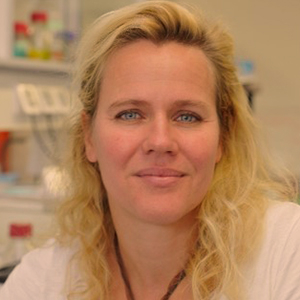
Dr. May C. MORRIS, biochemist and CNRS Research Director at the Max Mousseron Institute of Biomolecules, Pôle Chimie Balard Recherche in Montpellier, where she develops technologies for diagnostics and therapeutic targeting of cancer biomarkers
Of anglo-spanish origin, she completed her studies as a biologist at the University of Neuchâtel in Switzerland, obtained her PhD in Biochemistry and Biology and Health Sciences at the University of Montpellier, followed by a postdoc at the Scripps Research Institute, La Jolla, USA. She was hired by the CNRS in 2000, in the section “Pharmacology, Bioengineering, Health Technologies and Biomedical Imaging”, and joined the Macromolecular Biochemistry Research Center in Montpellier, then moved to the Max Mousseron Institute of Biomolecules in 2014 Author of more than 80 scientific publications, she was awarded the CNRS Bronze Medal in 2006 and laureate of the “Scientist of the Future” Languedoc-Roussillon Region in 2009, winner of the MATWIN Oncology Grand Prix in 2019, and was decorated with the insignia of Knight of the Legion of Honor in 2020.
May Morris joined the Femmes & Sciences (French Women & Science) Association in 2008, and has been part of its board of administration since 2013. She has been particularly involved in the coordination of Femmes & Sciences members and activities in Montpellier and established the F&S Mentoring Program for Doctoral Students at the University of Montpellier in 2015. She is also a member of the board of administration of the European Platform for Women Scientists.
Ekaterina Masetkina M.A.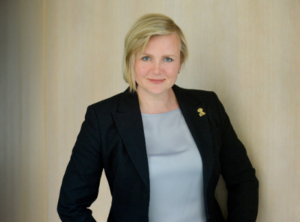
Ekaterina Masetkina M.A. is passionate about empowering of female early career researchers and is in charge of several mentoring programs for women in science at Heinrich Heine University Dusseldorf (HHUD). Under her supervision, four various mentoring groups for different academic target groups are regularly running at HHUD: for female doctoral researchers, for medical interns and for advanced postdocs in German language and a special group for international doctoral and early career postdocs Women in Science & Society (WISS) in English language: https://mentoring.hhu.de/en
Ekaterina has a Master of Arts in European Culture and Economy and works in the Central Gender Equality Office of HHUD. She is keen on improving the gender balance at her university and is involved in events enhancing visibility of female researchers. Ekaterina evaluates the mentoring programs and participates systematically at the international conferences on gender equality in high education. Ekaterina is a regular member of the German professional association Forum Mentoring in Science and Gender Consulting Network. Since 2019, Ekaterina has been acting as a chairperson of the professional network of mentoring coordinators eument-net (European Network of Mentoring Programs for the Advancement of Equal Opportunities and Cultural and Institutional Change in Academia and Research https://www.eument-net.eu/).
Dr. Laura Cortada-Gonzalez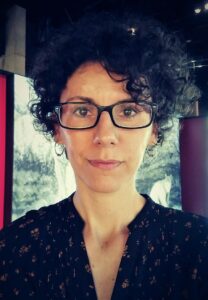
Dr. Laura Cortada currently serves as a Visiting Professor at UGent University for the International MSc in Nematology and holds the position of Senior Scientific Officer at VIB-IPBO. In her role at VIB-IPBO, she focuses on developing partnerships and establishing scientific networks to foster collaboration between European and African research and educational institutions. Her work aims to enhance technical capabilities among scientists, facilitating North-South collaborative scientific advancements in agriculture.
Having resided in East Africa (Kenya and Somalia) from 2011 to 2020, Laura dedicated herself to providing advisory services to small-scale farmers through both public and private organizations, including the Somalia Program of the Food and Agriculture Organization (FAO) of the UN. During this period, she also acted as the gender focal point of the FAO Agriculture sector. From 2016 to 2020, she also served as an associate scientist at the International Institute of Tropical Agriculture (IITA, icipe campus), engaging in diverse soil and plant health research initiatives across the African continent.Laura’s work at IITA was centred on developing sustainable farming solutions, particularly in smallholder systems, focusing on enhancing food security in Africa. Throughout all her endeavours, capacity building remains a central theme. Presently, Dr. Cortada is the developer and coordinator of the Open Doors Fellowship Program, which is dedicated to African women post-docs and funded by VLIR-UOS. Additionally, she serves as the co-promoter for the UGent International Plant thematic network on Plant Biotechnology and Breeding and the International Molecular Biology Lab (MoBiLab) training program.
Dr. Magdalena Żadkowska 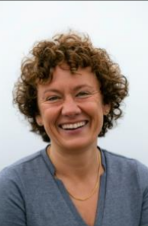
Magdalena Żadkowska, (female), PhD, Assistant Professor in Sociology Institute at University of Gdansk, Principle Investigator, Academic Teacher, focused on women and men carriers in STEM, diversity management, intimate relations and gender studies. Specialized in mixed methods and qualitative studies design and realization. Cooperates in international research projects with Norway, USA, Canada, UK, Italy, Romania, Chile and France. Education: PhD in Sociology, Nicolaus Coperinicus University, MA in Sociology, University of Gdansk, Poland, MA in Cultural Sciences, Jagiellonian University, Kraków, Poland.
Work experience in international projects and initiatives: Expert in gender relations and status quo for: (1) Community of Practice (On the Way to Gender Equality – Community of Practice for Gender Equality in Central and Eastern Europe) of ActProject under grant agreement No 788 204 (introducing Mamorandumof Understanding for establishing Communities of PrACTice for advancing gender equality in RPOs and RFOs across Europefor at UG), (2) Gender Academy European Union’s Horizon 2020 research and innovation programme under grant agreement No 824585, (3) National Researcher for Gender-Sensitive Parliaments – EU 28 assessment, (4) National Researcher for Gender Equality and Work-Life Balance Policies during and after the COVID-19 crisis Principle Investigator for Till death do us part… Everyday life practices of 50-64 years old couples with at least 20 years’ of common life experience, NCN SONATA BIS 8 UMO-018/30/E/HS6/00159.
Prof. Liudvika Leišytė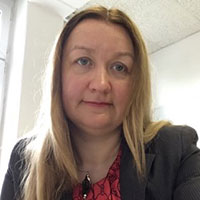
Liudvika Leišytė is Professor of Higher Education and Deputy Director at the Center for Higher Education at the Technical University Dortmund in Germany and visiting professor at Twente University in the Netherlands. A member of the Academia Europaea, the recipient of the TU Dortmund Internationalisation in Research award 2023, 2018 Emerald Literati Award she has published more than 120 papers in various scholarly journals and edited books. She is the author of six books (Routledge, Brill, Edward Elgar) on reforms of higher education, governance of higher education, organizational change and academic work in universities. Prof. Leišytė is a member of editorial boards of Higher Education Policy, Triple Helix, The Learning Organization, Acta Pedagogica Vilnensia, Social Inclusion, and Zeitschrift für Hochschulentwicklung. In COST VOICES action she has co-led Work Group 2 on Decision-making and Leadership and is a Management Committee member.
Dr. Marta Warat 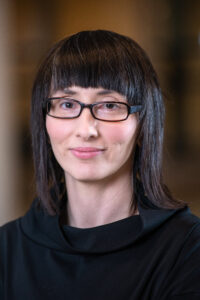
Marta Warat (PhD) –an assistant professor at the Institute of Sociology at the Jagiellonian University. Her scholarly interests revolve around gender/policy nexus, social inequalities, democracy and citizenship. From 2006 onwards she has been involved in several research projects (as a researcher and/or coordinator). She is currently involved in a H2020 project: Centre of Excellence on Inclusive Gender Equality in Research & Innovation: Creating Knowledge and Engaging in Collaborative Action – INSPIRE; and Horizon Europe project: Education for Responsible Democratic Citizenship – DEMOCRAT. She is a member of the COST Netowork “Making Early Career Investigators’ Voices Heard for Gender Equality – VOICES (COST Network) and coordinated a research project Research and Expertise focusing on opening a new specialization at the Institute of European Studies, Jagiellonian University. She published several journal articles and book chapters and co-edited four volumes.
Dr María López Belloso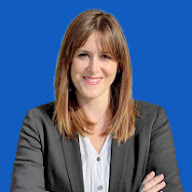
María López (PhD) is a lecturer and researcher at the Faculty of Social and Human Sciences of the University of Deusto. She has a degree in Law, a master’s degree in Humanitarian Action (NOHA) and a PhD in Human Rights from the same University. Her thesis on the processes of truth, justice and reparation for victims of enforced disappearance in Western Sahara received the Brunet Prize in 2017. Her research focuses especially on the interdisciplinary and intersectional approach to human rights violations and gender equality. She has participated in numerous international research projects such as H2020 Gearing Roles, RESISTIRE or Socio Bee. She was a member of the EC Expert Group on the impact of the COVID-19 pandemic on gender equality in EU R+D and also co-leads the working group on employment, career development and mobilities in the EU Cost Action “CA20137 – Making Young Researchers’ Voices Heard for Gender Equality”
Ola Thomson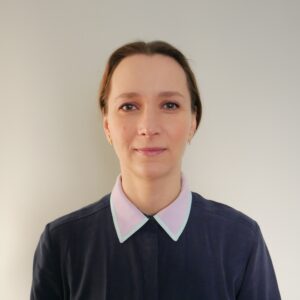
I am a social science academic with an interest in human resource management, qualitative research and participatory methods. My particular research interests relate to equality, diversity and inclusion, and gender equality, knowledge work and scientific careers, and how employees thrive in work organisations.
I have been involved in a Horizon 2020 project, ACT on Gender, a multi-partner consortium working together to create communities of practice to accelerate gender equality in higher education and research careers in EU and beyond. You can read about this project and its outcomes here: https://act-on-gender.eu/.
More recently, I have worked on a project funded by Wellcome Trust at the Elizabeth Blackwell Institute for Health Research, University of Bristol. I co-authored a book about practical ways for nurturing research careers. I also worked to promote equality, diversity and inclusion in health and biomedical research careers at Bristol and more widely with collaborators such as EDIS (Equality, Diversity and Inclusion in Science and Health), and DORA (Declaration on Research Assessment).
My PhD focused on the experiences of women knowledge workers, flexible work arrangements, and theories relating to agentic practices, organisational structures, gender, ideal worker norms, and institutional change.
Colette Guillopé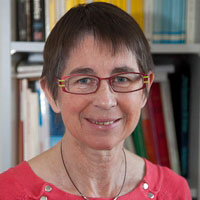
Colette Guillopé, Emerita Professor in Mathematics at Université Paris-Est Créteil, France. Mathematician and having undergone a dual career of researcher and teacher, she has been successively president of the French associations femmes & mathématiques (Women and Mathematics) and Femmes & Sciences (Women and Science). She has also been in charge of parity in her university for 5 years. In 2011, she contributed to the creation of the association CPED (Standing Conference of Officers for Equality and Diversity in Higher Education and Research Institutions), which today has as members more than 80 institutions of higher education in France. She is Vice President of the European Platform of Women Scientists (EPWS) since 2021. EPWS and CPED are among the stakeholders and partners of the COST Action VOICES. She has also been part of several international projects concerning women in science. The most recent one is a project about “A Global Approach to the Gender Gap in Mathematical, Computing, and Natural Sciences : How to Measure It, How to Reduce It” (2020, International Mathematical Union, Berlin, isbn 978-3-00-065533-3. zenodo.org/record/3882609). Her expertise is geared toward the promotion of girls and women in fields where they are very few and also deals with gender-based violence in higher education and research, i.e. one of the reasons women may drop out of these fields.
Dr Victoria Showunmi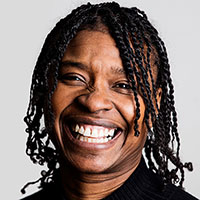
Dr Victoria Showunmi is Vice Dean EDI and Associate Professor at University College London in the Faculty of Institute of Education. BERA Academic Citerzin Award 2023:
https://www.bera.ac.uk/award/2023-bera-academic-citizen-of-the-year Her interests are gender, identity, and race through the lens of intersectionality, focusing on leadership and the lived experience of Black women and girls. Victoria develops fresh conceptual frameworks focusing on equity and social justice, especially the interplay between people and the sophistication of behaviours which lead to disengagement with the promotion of equality. Her work shows how culture and cultural background have the
potential to disrupt power structures and lead to transformational change.
She has an international profile based on the dissemination of her research through
publication and teaching. Her scholarly work is acclaimed nationally and internationally.
She is a member of the Gender and Education Executive, Past Conference Chair for British Educational Leadership Management and Administration Society, Chair of the International studies SIG, American Educational Research Association, and co-convenor, Gender Network, European Educational Research Association. She is on the editorial board of Bloomsbury Educational Leadership: Innovative Critical and Interdisciplinary Perspectives and Transforming Education through `Critical Educational Leadership, Policy and Practice’ (Emerald) as well as assistant editor for the International Journal of Leadership in Education.
Dr. Stacy Johnson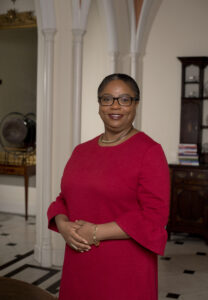
Stacy Johnson, an Associate Professor in the School of Health Sciences, University of Nottingham is an emerging international thought leader in critical inclusive leadership. She is founder and Chief Scientific Officer of the spin out company, The Reverse Mentoring Practice Ltd, a company part owned by the University of Nottingham. In the start-up, she uses her ground breaking reverse mentoring framework to develop the cultural humility of leaders and enhance diversity and inclusion so that people and organisations thrive. She created the award-winning National and European Junior Leadership Academies for student nurses and midwives. Stacy was made a Member of the British Empire in the 2019 New Year’s Honours list for services to healthcare and higher education equality, diversity and inclusion. Visit: https://reversementoring.com
Temitayo Lawal 
Temi is a leader and academic within the Higher Education (HE) sector, well-versed in leading large-scale programmes and effecting institutional change by integrating Equity, Diversity & Inclusion (EDI). strategies into programmes and courses. Temi is a PhD candidate and Post Graduate Teaching Associate at University College London, Institute of Education, investigating the impact of EDI ini4a4ves on the experience and professional trajectories of Black academic women in Britain. Her research utilises a Socio-Philosophical analysis, grounded in Critical Race Theory, Critical Philosophy of Race and Black Feminist Theory as a framework. Temi also works at the Women’s Higher Education Network (WHEN) as Senior Programme Manager, steering the strategy and operations of the organisations flagship 100 Black Women Professors NOW programme, a sector leading systemic change programme addressing the absence of Black women in the academic pipeline. Temi draws upon her EDI research expertise to help organisations shitf the dial on gender and race equity, championing for intersectional and meaningful impact through structural and cultural changes.
Xavier Eekhout Chicharro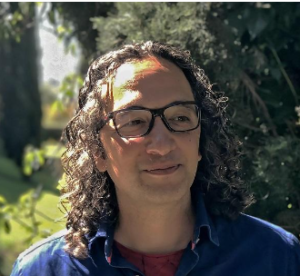
Is a biologist who worked in the Animal Sound Library (www.fonozoo.com) of the Museo Nacional de Ciencias Naturales (MNCN-CSIC) until he specialized in EU project management. After being the scientific manager on behalf CSIC in the FP6 Network of Excellence EDIT (Towards a European Distributed Institute of Taxonomy), he started working in FECYT in 2011 where he has participated in several FP7, H2020 and HORIZON EUROPE projects linked to the EURAXESS initiative and researcher career development in general. Apart from EU projects, Xavier works in the management of the EURAXESS Spain network coordinated by FECYT and since the beginning of Horizon Europe, he is also MSCA NCP for Spain. Within this framework he has actively participated in the design and implementation of several mentoring programmes for researchers, most notably, the REBECA (REsearchers BEyond aCAdemia) mentoring programme which has already completed 4 editions.
Dr. Nataliya Rohr-Udilova 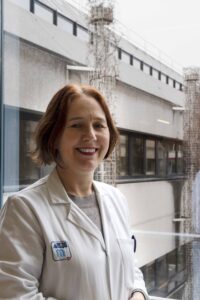
Nataliya Rohr-Udilova is an Associate Professor of Tumor Biology at the Department of Gastroenterology and Hepatology, Medical University of Vienna, Austria. She was born in Kiew, Ukraine, and studied applied mathematics and physics at the Moscow Institute of Physics and Technology. She received her PhD (Dr. rer. nat.) from the Humboldt University of Berlin, Germany, and completed her Habilitation in Tumor Biology at the Medical University in Vienna, Austria. Nataliya has published numerous original research papers and has presented her findings at numerous scientific meetings. Her current work addresses mast cells in hepatocellular carcinoma.


